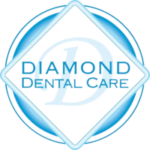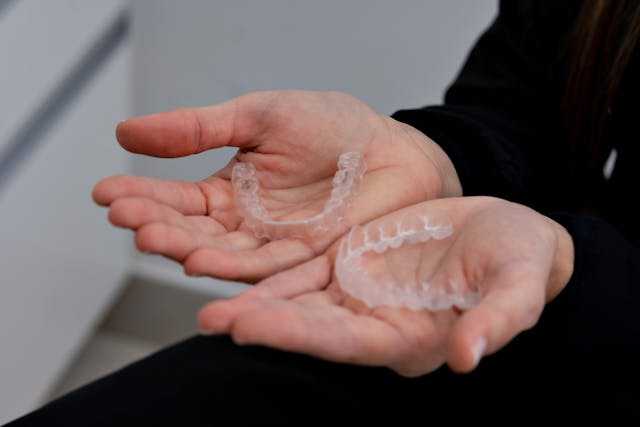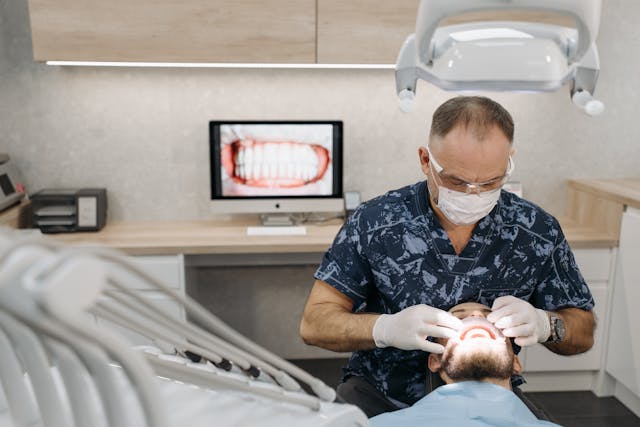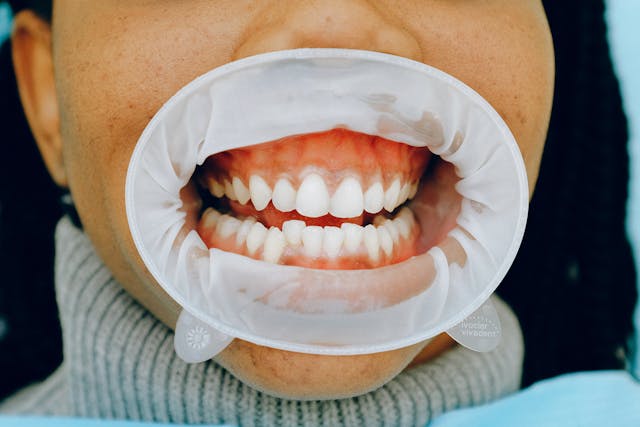🧩 Introduction to TMJ Disorders
Ever felt like your jaw just isn’t working right? It may be TMJ Disorder. Maybe it clicks when you chew, or you’ve had headaches that seem to radiate from your jaw. You could be dealing with TMJ disorder, short for temporomandibular joint disorder. This condition affects the joint that connects your jawbone to your skull. It’s more common than you think, and luckily, it’s manageable with the right care.
Call us at (909) 860-7579 to book your visit. You can also connect with us on Facebook or leave a review on Yelp. We look forward to seeing you!
🦴 Anatomy of the Temporomandibular Joint
The TMJ works like a sliding hinge, connecting your jaw to the temporal bones of your skull, right in front of each ear. It allows you to talk, chew, yawn — basically, any movement that involves your mouth. When it’s functioning properly, you probably don’t notice it. But when something goes wrong, it can be hard to ignore.
🚨 Common Symptoms of TMJ Disorders
Not sure if you’re dealing with TMJ issues? Here are the most common red flags:
- Jaw pain or tenderness, especially when chewing or talking
- Clicking, popping, or grinding noises when you move your jaw
- Limited jaw movement or lockjaw
- Headaches, earaches, or facial pain
- Swelling on the sides of your face
These symptoms can come and go, or stick around — either way, they shouldn’t be ignored.
🔍 Causes of TMJ Disorders
So, what causes this annoying and painful condition? Here are the main culprits:
- Teeth grinding (bruxism) — often happens in your sleep
- Arthritis in the joint, including osteoarthritis or rheumatoid arthritis
- Injury or trauma to the jaw
- Stress, which can cause you to clench your jaw unconsciously
- Bite misalignment or crooked teeth
Sometimes it’s just one issue; other times, it’s a combo of several.
👥 Risk Factors and Who Is Most Affected
TMJ disorders can affect anyone, but some people are more at risk:
- Women between 20-40 are more likely to develop it
- People under chronic stress
- Those with a history of jaw trauma
- Anyone who grinds their teeth or has arthritis
Genetics and lifestyle definitely play a role here.
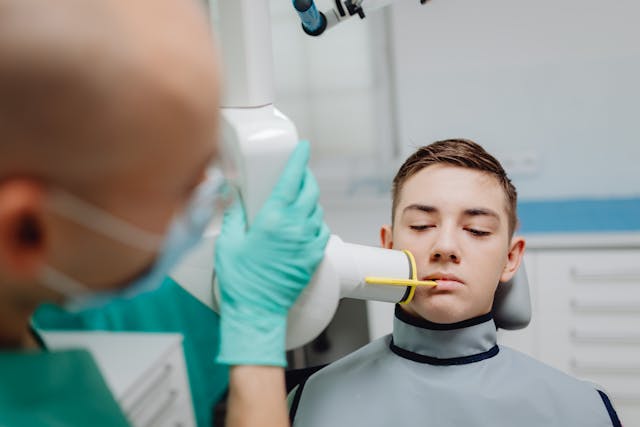
🗣️ How TMJ Affects Daily Life
TMJ isn’t just a jaw issue — it can impact your whole day. Eating becomes painful, conversations are uncomfortable, and headaches can be constant. It can even affect your sleep and mood. Living with untreated TMJ can feel like a never-ending cycle of frustration.
🩺 Diagnosing TMJ Disorders
A proper diagnosis is crucial. Dentists or specialists will usually:
- Perform a physical exam of your jaw
- Use X-rays, MRIs, or CT scans to check for joint damage
- Evaluate your bite and alignment At Diamond Dental Care, we take a comprehensive, gentle approach to diagnosing TMJ — no stress, just solutions.
👨⚕️ When to See a Dentist or Specialist
Here’s your sign: if jaw pain is affecting your life, it’s time to get help. Dentists play a key role in early detection and treatment of TMJ disorders. At Diamond Dental Care, we’re equipped to help from your very first visit — no referrals or long waitlists needed.
💊 Treatment Options for TMJ Disorders
You’ve got options — lots of them. Depending on the severity, we might recommend:
- Lifestyle adjustments like changing your diet or posture
- Over-the-counter or prescription medications for pain and inflammation
- Custom nightguards or dental splints to prevent grinding
- Physical therapy for jaw exercises
- Counseling or stress management to address clenching habits
These treatments can provide huge relief without needing surgery.
💉 Advanced Treatments and Surgical Options
When conservative methods don’t cut it, there are advanced treatments available:
- Botox injections to relax tense jaw muscles
- Corticosteroid injections to reduce inflammation
- Arthrocentesis to wash out the joint
- Arthroscopy or open-joint surgery for more severe cases
Surgery is rare, but it’s sometimes the best option for long-term relief.
🏠 Home Remedies and Self-Care Tips
Some simple changes at home can go a long way:
- Apply warm compresses to ease muscle tension
- Use cold packs to reduce inflammation
- Eat soft foods and avoid chewing gum
- Practice jaw stretches and relaxation techniques
- Avoid clenching your jaw — even when you’re stressed!
🛡️ Preventing TMJ Disorders
The best treatment? Prevention. Keep these habits in check:
- Practice good posture, especially at work
- Reduce stress through meditation, yoga, or deep breathing
- Don’t skip your routine dental checkups
- Avoid habits like nail biting or chewing on pens
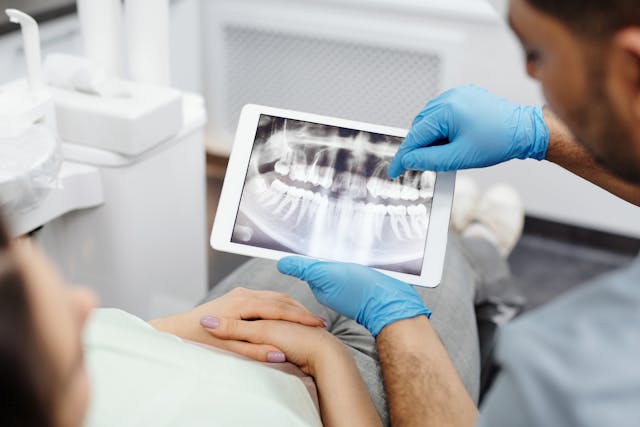
🏥 Why Choose Diamond Dental Care for TMJ Treatment
At Diamond Dental Care, we don’t just treat teeth — we treat people. Our team uses state-of-the-art technology and a warm, patient-first approach to help diagnose and treat TMJ disorders effectively. Located at 303 South Diamond Bar Blvd, Ste 2C, Diamond Bar, CA 91765, we’re here to help you live pain-free. Give us a call at (909) 860-7579 to book a consultation and get started on your journey to relief.
🧾 Conclusion
TMJ disorders can be painful, frustrating, and downright exhausting — but they’re treatable. The sooner you recognize the symptoms and get help, the better your chances of avoiding long-term damage. Whether you’re dealing with mild discomfort or chronic jaw pain, the team at Diamond Dental Care is ready to help you feel like yourself again.
Call us at (909) 860-7579 to book your visit. You can also connect with us on Facebook or leave a review on Yelp. We look forward to seeing you!
❓FAQs About TMJ Disorders
1. What foods should I avoid with TMJ?
Avoid hard, chewy, or crunchy foods like gum, steak, and raw veggies. Soft foods are your friend!
2. Is TMJ permanent?
Not necessarily! Many cases can be managed or even resolved with treatment and lifestyle changes.
3. Can stress really cause TMJ?
Absolutely. Stress leads to clenching and grinding, which are major triggers for TMJ pain.
4. How long does TMJ take to heal?
It depends — some people feel relief in a few weeks, while others need ongoing treatment over months.
5. Does insurance cover TMJ treatment?
It varies. Some plans do, especially if the treatment is medically necessary. Check with your provider or call our office for help!
